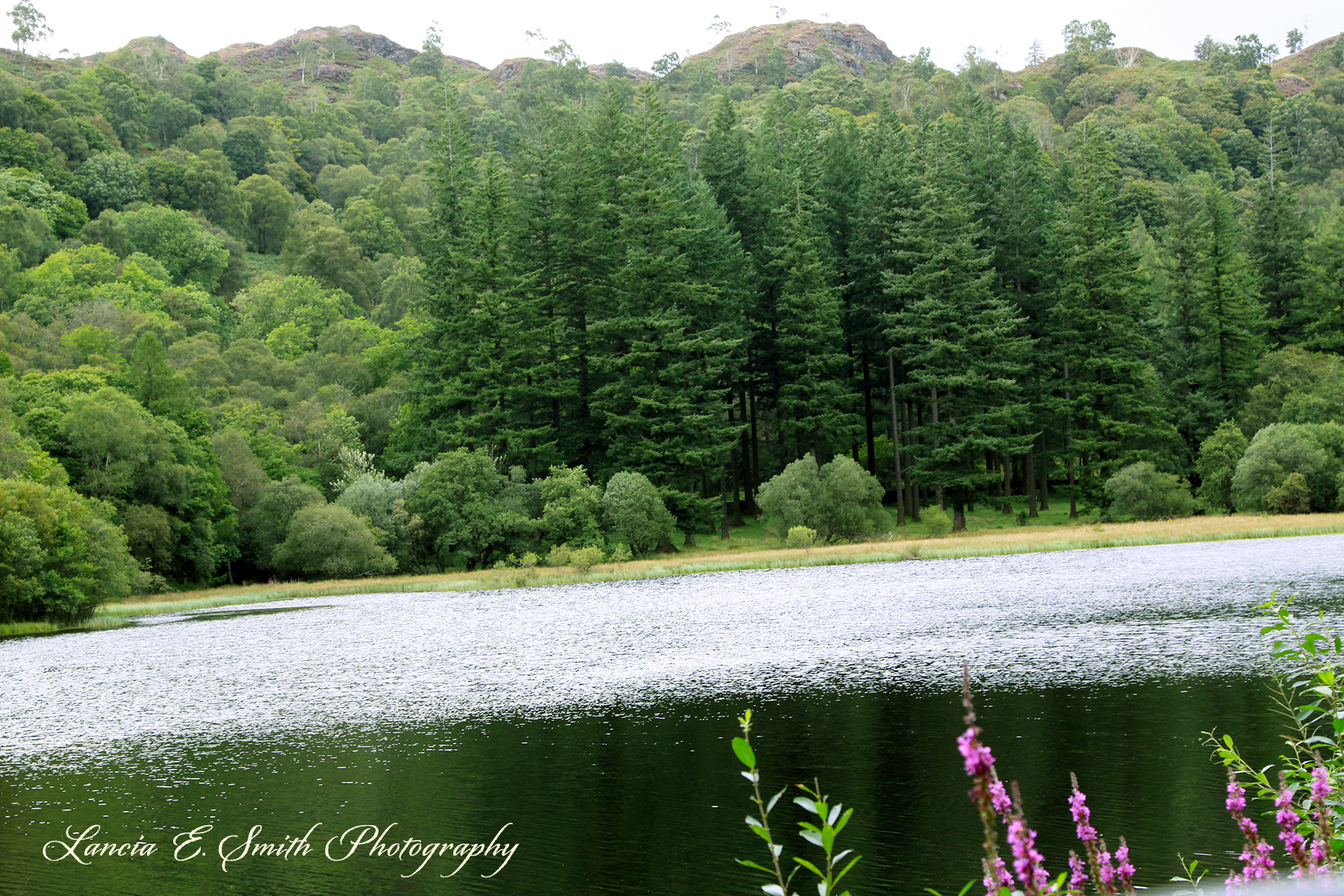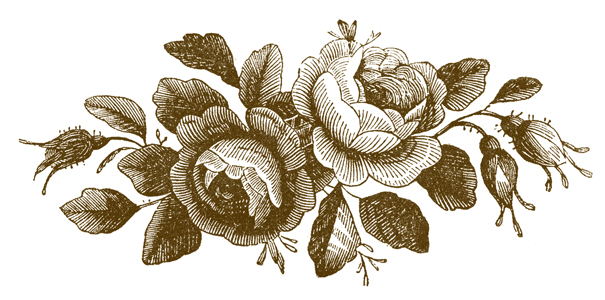On a dusky evening early last January, I walked down to a little park perched on the edge of a cliff that overlooks the Sound. My eyes stung with the cold as I stood beside the holly tree at the viewpoint. Seagulls swooped in dark silhouette against the orange-pink sky, and a lone light shone on the far side of the water.
I ached with the sheer beauty of it all and the wonder of my living in such a lovely place. I remembered the desperately jealous girl I’d been just a few years before, looking at other writers’ lives and envying them what seemed to be a surfeit of beauty and goodness to plumb for meaning and exquisite prose, and I realized with a shock of gladness that my life now looked every bit as beautiful as theirs. It wasn’t what was in front of me that had changed; what had changed was how I saw it—or even that I saw it.
Earlier that day I’d read my first Ruth Pitter poem, “The Bird in the Tree,” which is about just that: a bird in a tree. And yet Pitter asks:
Where is the word, the word,
Oh where is the art,
To say, or even to see,
For a moment of time,
What the Bird and the Tree must be
In the true sublime?
Pitter knows that the bird and tree shine, radiating a deeper Reality. As the poem unfolds, her vision, bright and beautiful and aching in her longing to see to the heart of things, transfigures a common bird in a common tree into the stunning creatures that they truly are.
As I stood shivering above the water, I smiled to myself. It wasn’t my vista that had changed these past years. It was my vision. It was my deepening belief that life is always happening right where you are. For years, I’d known this—cognitively. But slowly, oh so slowly, that knowledge was seeping down into my heart, so that I could stand in the freezing wind and the deepening dusk and stare at the steely water and the light on its far shore and ache with the glory of it all.
Toward the end of her poem Pitter prays that she would be given grace
to see
With eternal, ultimate eye
The Bird and the Tree.
This has long been my prayer, too, this mimesis of the blind man’s request to Jesus: “Lord, I want to see.” The great promise of the Christian life is that God is in it. God is here just as much as He is there, and if I cannot find God in my life as it is—in this bird and this tree—a change of circumstance won’t help me see Him. It’s not circumstance that blinds me to His presence; it’s inattentive habits of heart and mind. We are all St. Paul in the house on Straight Street, our eyes covered with scales.
To wit: at one point in my solitary vigil on the cliff-edge, a vigil in which I was pondering the gift of sight, I was so wrapped up in my thoughts that I suddenly realized I was staring at the light across the water, but I wasn’t seeing it. How long, I wondered, had I stood there with eyes that did not see? What irony! And what a perfect metaphor. How much of my life was I missing because I wasn’t present, because my thoughts and attention were somewhere else? How much anxiety did I cause myself because I wished I were somewhere else, because I thought better, more important things were happening in some other place, some other life? How much of our cultural rush and restlessness is simply because we do not show up with all our senses alert to the beauty and awe and wonder of this moment, right here, right now? Because we do not bother to see the bird in the tree or the light across the water?
Pitter opens her poem with a soul-searching question about her ability to express—or even experience—“the tree, and its haunting bird” in the fullness of their Reality. She ends the poem with another eye-opening, heart-searching, and deeply haunting question:
The song in the living Green,
The Tree and the Bird—
Oh have they ever been seen,
Ever been heard?
How often am I blind and deaf to the world around me, to the gifts of beauty and mercy and goodness that surround me like air? God lavishes grace upon grace, blessing upon blessing. He places a bird in every tree, singing “the song in the living green.”
There is always light across the water.
But we have eyes that do not see, ears that do not hear, and hearts that do not perceive, or receive.
The One who opened the eyes of the blind and the ears of the deaf stood beside me that day on the cliff, and, as He once asked a blind man, He now asked me, “What do you want me to do for you?”
Ruth Pitter knew the answer to that question:
Oh give me before I die
The grace to see
The dusk had long since turned to darkness, and as I turned to leave the viewpoint, a seagull cried. Another answered, their antiphonal calls echoing from sea to shore. The light from across the water caught the tail of my eye.
I turned back to gaze for a moment of time at that one small, steady point of light.
It is a privilege to share the work from K.C. Ireton with you and this piece in particular has lingered and resonated with me. K.C. has exquisitely captured the quiet moment of revelation of what it means to truly see God’s goodness and presence around us.
Everything about this piece reflects the heart, soul, purpose and hope of Cultivating the Good, the True & the Beautiful.
To read more regarding the poem by Ruth Pitter you will find a marvelous presentation and discussion of it in Malcolm Guite‘s extraordinary book – Waiting on the Word. Here is a link to Malcolm’s blog about it and his reading the poem itself.
The image above is one of the countless points of water beauty in England’s beloved Lake District. I caught the light on the water while Peter was driving us to Kirkstone Pass after visiting Hilltop, home and farm of Beatrix Potter.
I love little else in this world quite like road trips with Peter and this one was especially magic!
Many blessings to you, friends!
K. C. Ireton is a multi-published author of both fiction and nonfiction books, including The Circle of Seasons: Meeting God in the Church Year and A Yellow Wood and Other Stories. She and her daughter, Jane, co-host Lantern Hill, a podcast for people who love books, children, and God. Visit kcireton.com to learn more about her work and download the first two chapters of her most recent book. Or visit her on Substack at kcireton.substack.com, where she publishes stories and liturgies.
Leave a Reply
A Field Guide to Cultivating ~ Essentials to Cultivating a Whole Life, Rooted in Christ, and Flourishing in Fellowship
Enjoy our gift to you as our Welcome to Cultivating! Discover the purpose of The Cultivating Project, and how you might find a "What, you too?" experience here with this fellowship of makers!




I found quick kinship of heart, with Kimberlee, the moment I broke into my first copy of The Circle of Seasons. In a world (even among professing Christians) where the ‘uncertain gloom’ is becoming the celebrated focus, I thank you both for affording me an easy breath in reading this post, where beauty is clear and light is true. Blessings in Him, Denise Armstrong
Good heavens, how beautiful. Thank you for such heart-opening perspective–your words never cease to bless, Kimberlee. xx
Dearest Lanier, coming from you, these words of commendation are especially meaningful to me! Thank you, friend.
Thank you, Denise! I lived far too long in the “uncertain gloom” of which you speak. “The world is charged with the grandeur of God,” but I was so busy staring at my own self (no wonder I lived in uncertain gloom!) I rarely saw it. Simply stopping the self-focus long enough to look around at the world and see something beyond the paltry confines of myself opened my eyes to more beauty than I thought possible. The light is true, and “it will flame out, like shining from shook foil.”
Your insights, Kimberlee, have certainly cultivated the good, the true, and the beautiful! Loved the wisdom here, too, such as: “The great promise of the Christian life is that God is in it.” To see Him in every bird and tree–now that’s a sublime goal. Thank you for leading the way!
Thanks, Nancy. Reading Dallas Willard today (Renovation of the Heart) reminded me just how great a promise it is that God is with us and is always working all things together for our good. He really is present always everywhere, and I want eyes to see that!
[…] an essay on spiritual sight and blindness, with a dipperful of poetry for good measure, over at The Cultivating Project. (If you only read […]